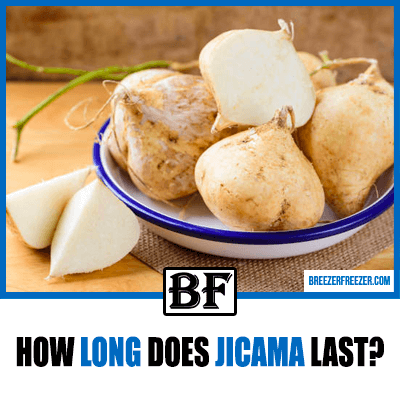How long does spaghetti sauce last?
Beloved spaghetti in America is a staple of many homes. It is delicious, filling, and affordable. Marinara spaghetti sauce has to be top of the list for store-bought and homemade sauces. But for busy families, store-bought marinara sauce is always in the kitchen cabinet, ready for that unexpected guest. But how long does it last?

The Daily Mail recommends you use canned tomatoes if you make your spaghetti sauce! It may seem like sacrilege, but the reason is the tomatoes were canned at the height of the flavor profile, making them the ideal choice for the base for your spaghetti sauce.
Spaghetti sauce is a staple of most homes, so you should know how to maximize its shelf life. This article will answer frequently asked questions so you can be a spaghetti sauce expert.
Let’s dive in.
Does spaghetti sauce expire?

Yes, spaghetti sauce does expire. Buying store-bought spaghetti sauce for your kitchen cabinets is a smart move. Most store-bought spaghetti sauces have a shelf life of around one year which is a long time.
Putting spaghetti sauce from the grocery store in a jar will last a year and maybe 18 months if stirred in a cool place and out of direct sunlight.
If your spaghetti sauce has an expiration date, the date does not mean the sauce is not good after that date. On the contrary, your sauce will have been pasteurized and will last long past the date.
The FDA or USDA does not mandate the expiration date on jars of spaghetti sauce. It is a voluntary step from the manufacturer, which indicates when the product will be at its peak flavor and texture. After the date, the product will slowly degrade, but it can take years if the spaghetti sauce is stored correctly.
If you keep the jar of spaghetti sauce long after the expiration date and open it, and its smells and tastes fine, it is safe to eat.
On the other hand, when the spaghetti sauce is opened, the time is ticking towards the sauce spoiling. An open spaghetti sauce jar will last 5 and 7 days in the refrigerator if the fridge is at 40℉.
Beyond this date, the spaghetti sauce will develop molds and become inedible and should be tossed out.
You would expect homemade spaghetti sauce to have a short shelf life, and you would be right. Because homemade spaghetti sauce does not contain preservatives or additives to keep the product stable, it will last for about 5 days in the fridge at 0℉.
But palace the homemade sauce in an airtight container before refrigerating. If you have added cream to the spaghetti sauce, the shelf life will drop further, and the sauce should be consumed within two days maximum.
Does spaghetti sauce need to be refrigerated?

An unopened jar or can of spaghetti sauce can stay in the kitchen cabinet or a cool pantry away from sunlight for a long time, well past the expiration date. It seems crazy to use the sauce in the fridge for store-bought sauces, but if you wish, it will be stored ideally in the fridge.
Once the jar or can of spaghetti sauce is opened, the clocking is ticking, it’s a good idea to consume it as soon as possible, but after a week in the fridge, it should be tossed in the garbage.
Make sure the lid is resealed when storing in the fridge.
Fresh spaghetti sauce needs to be refrigerated as soon as it’s been cooked. The life in the fridge will be around a week if stored in an airtight container.
Again if the cream has been added to the sauce, the sauce shelf life will reduce until a day.
Does the spaghetti sauce need to be covered in the fridge?
Yes. Your fridge door (particularly in a busy kitchen) is opening and closing many times a day. This will increase the fridge temperature and, at times, may place the temperature in the fridge at +40℉ between 40 and 140℉ is the food danger zone.
This is when bacteria growth can accelerate, potentially making the food dangerous to eat, especially if the temperature has been elevated for around two hours.
Store-bought spaghetti sauce will need to have the sealable lid firmly placed on the jar.
It is crucial to store homemade spaghetti sauce in an airtight container.
Can you put warm spaghetti sauce in the fridge?

You should let the spaghetti sauce cool down before refrigerating. Placing warm sauce in the fridge will radiate heat causing the fridge’s interior temperature to rise above 40℉, which will place the fridge’s contents in the food danger zone.
Allow foods and spaghetti sauce time to cool before they are placed in the fridge in a sealed container.
How long can spaghetti sauce sit out?
2 hours. Spaghetti sauce exposed to the air at room temperature has a maximum life of two hours before it should be discarded.
According to the USDA, perishable foods, which spaghetti sauce would come under, will become contaminated with bacteria if sitting out at room temperature.
The growth of bacteria proliferates exponentially when food is stored in the food danger zone of 40 to 140℉ after two hours. The food’s bacterial load is deemed sufficient, and it could cause harm if consumed.
How long does spaghetti sauce last in the fridge?
Store-bought unopened spaghetti sauce will last for 18 months plus in the fridge. It can be stored in a kitchen cabinet or pantry and last the same time if it’s not exposed to heat and direct sunlight.
Once store-bought spaghetti sauce is open, it has a shelf life of around a week in the fridge if the lid is sealed correctly.
Homemade spaghetti sauce is more delicate, and the fresh ingredients will not last so long but even then, once stored in an airtight container, you can expect homemade spaghetti sauce to last 5 days.
However, if you have added cream or any other dairy product like parmesan, the life will reduce significantly to two days maximum in the fridge.
Does frozen spaghetti sauce go bad?
No. You can expect frozen spaghetti sauce to last up to six months in the freezer. But it will lose its flavor profile and texture over time.
Place the spaghetti sauce into freezer bags, something like a Ziploc bag is ideal, but any bag as long as it can be sealed will suffice.
Once the spaghetti sauce is in the bag, expel as much air as possible, you can run your fingers along the bag and seal it, so it’s something like airtight.
Spaghetti sauce can be susceptible to freezer burn, so try to mitigate the freezer burn by wrapping the bags of spaghetti sauce in foil and then placing the foil-wrapped bags in an airtight container.
The texture may change if the structure of the spaghetti sauce is rustic with chunks of tomatoes. The ice crystals will form in the fruit, making the flesh more pureed and softer as the ice crystals cut and slice their way through the structure of the tomato’s flesh.
It’s still perfectly ok to eat.
Freezer burn of spaghetti sauce takes place when the freezer is opened. It’s called sublimation, where the ice misses one of its phases, say from ice to water to evaporate. It misses the water stage.
Freezer burn itself is fine to consume. It may change the flavor profile, but it’s definitely not bad.
How do you thaw spaghetti sauce?
The best way is slowly. Place the spaghetti sauce on a platter and place it in the fridge. It will thaw overnight and be perfect for cooking with your spaghetti.
If you are in a hurry, place the spaghetti sauce in a water bowl. It will thaw much quicker this way. If you are in a massive rush, there is always the microwave but zap it on a defrost setting to ensure it is not cooking in the bag that could make the bag explode.
How can you tell if spaghetti sauce is bad?
Despite tomatoes’ high acid content, they exhibit signs of mold when they turn bad. Tomatoes and spaghetti sauce look bright if it is fresh, some jars will look a darker color, but spaghetti sauce has a distinctive color.
Any color variations are an indicator that spaghetti sauce is turning bad. Your nose does not lie to you if the spaghetti sauce smells funky. It is funky and should be discarded.
If you are dubious about the condition of the spaghetti sauce, throw it away, there is no need to dip your finger in and go for the taste test. Throw it in the garbage.
Final thoughts
Store-bought spaghetti sauce can last past the expiry date and last for more than 18 months if stored correctly in a cool, dry environment from direct sunlight. The kitchen cabinet or pantry are ideal storage places.
Once opened, the store-bought spaghetti sauce will last for around a week. Give or take a day if it’s sealed in the jar tightly.
Fresh spaghetti sauce will remain in an airtight container in the fridge for 5 days and will be fresh for your spaghetti.
Freezing spaghetti sauce works well, and you can extend the life of the sauce to six months.





